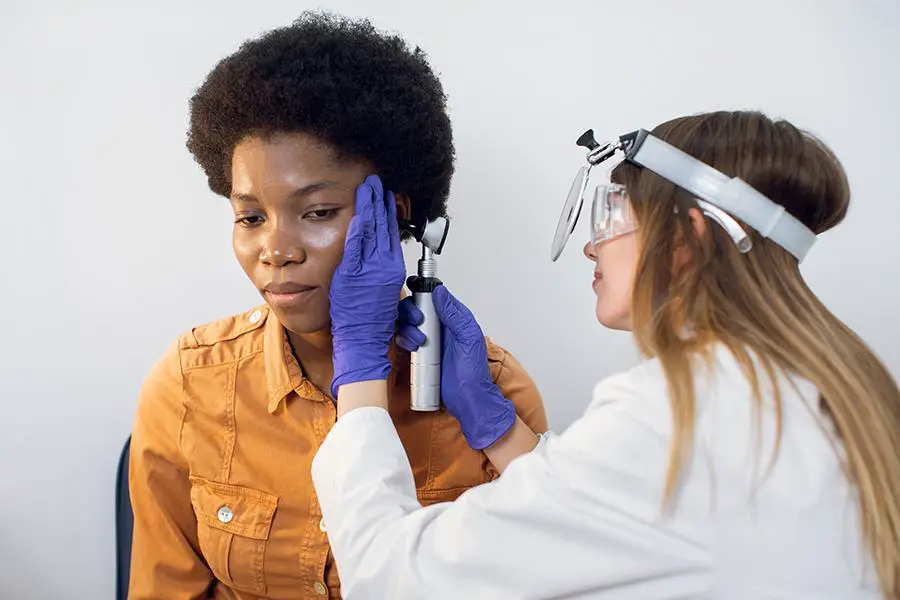Introduction
Navigating the world of hearing loss after a battle with meningitis can be challenging. Yet, there are numerous individuals and organizations committed to uncovering every path that could offer relief and a higher quality of life. Among these myriad approaches, some lie outside the realm of traditional medicine. This blog post aims to bring these unconventional yet promising strategies to the fore, equipping caregivers and patients with information that could spark fresh hope.
Hearing loss resulting from meningitis can vary in severity, from mild hearing difficulties to complete deafness. This spectrum of experience demands a diverse set of strategies. As a caregiver or an individual affected by hearing loss, understanding the range of options at your disposal will help you tailor a solution that aligns with the specific needs and preferences of your loved one or yourself.
Whether you are starting this journey or you are well into it, this blog post serves as a guide to the various innovative and unconventional approaches being used to alleviate meningitis-associated hearing loss. From alternative therapies to yoga, mindfulness, and animal-assisted therapy, these strategies extend beyond the physical aspect of hearing loss, addressing the emotional and psychological challenges that often accompany the condition.
Alternative Therapies for Alleviating Meningitis-Associated Hearing Loss
Alternative therapies, although not a direct treatment for hearing loss, can help manage the stress and anxiety that often accompany this health challenge. Acupuncture, for instance, has been reported to provide some degree of relief for tinnitus, a condition commonly experienced by people with hearing loss. A 2015 study by the American Journal of Audiology found that acupuncture, in combination with traditional treatments, showed promise in managing the symptoms of tinnitus [1]. However, more research is needed to fully understand the potential benefits and mechanisms at play.
Mindfulness and Meditation: Managing the Emotional Challenges of Hearing Loss
Mindfulness and meditation offer significant mental health benefits, and they are increasingly recognized for their potential to help individuals cope with the emotional challenges of hearing loss. A study published in the American Journal of Audiology showed that mindfulness-based cognitive therapy could reduce symptoms of anxiety and depression in adults with hearing loss [2].
The use of mindfulness in managing hearing loss is predicated on the idea that accepting and embracing the current moment, regardless of its content, fosters emotional resilience. In the context of hearing loss, this could mean acknowledging the reality of the condition without judgement, thereby reducing the anxiety often associated with communication challenges.
Meditation, too, plays a role in managing the emotional challenges associated with hearing loss. A regular meditation practice can help to calm the mind, reduce stress levels, and promote emotional well-being. The British Tinnitus Association provides resources on mindfulness and meditation that can be helpful for individuals with hearing loss [3].
The practice of mindfulness and meditation are non-invasive, accessible, and adaptable, making them a feasible addition to the management regimen of individuals grappling with meningitis-induced hearing loss.
Art and Music Therapy: Creative Outlets for Meningitis Survivors with Hearing Loss
Art and music therapy have been gaining recognition for their benefits in managing various health conditions, including hearing loss. These therapies can provide a creative outlet for expression, helping to alleviate the emotional strain associated with the condition.
Art therapy, for instance, utilizes the creative process of making art to improve and enhance physical, mental, and emotional well-being. For individuals coping with hearing loss, it can serve as a powerful form of expression, allowing them to externalize their feelings and experiences in a non-verbal manner. The American Art Therapy Association provides resources and guidelines on how to implement art therapy for various conditions [4].
Music therapy, on the other hand, can offer surprising benefits for individuals with hearing loss. Despite the hearing challenges, music can be experienced through vibrations and rhythm. This therapy involves using music to accomplish individualized goals within a therapeutic relationship. It can help improve mood, reduce anxiety, and foster a sense of community, all critical factors in managing the psychological aspects of hearing loss. The American Music Therapy Association provides a wealth of information on the benefits and implementation of music therapy [5].
These therapies are not a cure for hearing loss, but they offer innovative ways to manage and cope with the condition. They allow individuals to explore their creativity while addressing emotional challenges, leading to improved overall well-being.
Yoga and Exercise: Promoting Well-being in Individuals with Meningitis-Induced Hearing Loss
Physical exercise and practices like yoga can play an important role in overall health and well-being. They not only help maintain physical fitness but also reduce stress and improve mental health. For those dealing with meningitis-induced hearing loss, yoga and exercise can be part of a comprehensive health routine.
Yoga, in particular, has been shown to have a wide range of health benefits, including stress reduction, improved mood, and better sleep, all of which are beneficial for individuals managing hearing loss. There are even specific yoga poses, such as the “Lion’s Breath,” that are believed to be beneficial for ear health [6].
Regular physical exercise, in general, promotes cardiovascular health, which is crucial for maintaining good ear health. Improved blood circulation ensures that the inner ear, responsible for processing sound and maintaining balance, receives adequate oxygen supply.
The British Tinnitus Association recommends exercise as a valuable part of managing tinnitus and hearing loss. They provide resources and information on the benefits of physical activity for individuals dealing with these conditions [7].
Exploring Hearing Aid Integration in iOS
Animal-Assisted Therapy for Meningitis Patients Coping with Hearing Loss
Animal-assisted therapy is a therapeutic intervention that incorporates animals, such as dogs, horses, and even dolphins, into treatment plans to improve a patient’s social, emotional, or cognitive functioning. Research shows that animal-assisted therapy can be beneficial for a wide range of health issues, including the management of hearing loss.
The companionship and unconditional love offered by therapy animals can alleviate feelings of isolation or loneliness that often accompany hearing loss. These animals can also be trained to assist in communication tasks, alerting their handler to sounds like doorbells, alarm clocks, or smoke alarms. Canine Companions for Independence, for example, trains dogs to perform these tasks for individuals with hearing loss [8].
In addition to these practical benefits, interacting with animals can also lower blood pressure, reduce stress, and improve overall mental well-being. The American Veterinary Medical Association highlights the benefits of animal-assisted therapy in improving a patient’s social, emotional, and physical function [9].
Conclusion
Living with meningitis-induced hearing loss can be a challenging journey. Still, the resilience and strength of those affected are evident in their adaptation to a new normal and the continuous search for alternative solutions to enhance their quality of life. These unconventional therapies – from the creative outlets of art and music, the physical and mental harmonization of yoga and exercise, to the emotional support provided by therapy animals – not only aid in coping with hearing loss but also foster a sense of empowerment and independence.
These unconventional therapies are not a one-size-fits-all solution but offer various avenues to explore what works best for each individual. They demonstrate the value of a holistic approach to managing hearing loss, emphasizing the need to address not just the physical effects, but also the emotional and psychological impacts of the condition.
As we continue to innovate and research, there is optimism that we can improve the quality of life for individuals affected by meningitis and hearing loss. Their determination, coupled with the continuous development of these unique interventions, paints a promising future.






